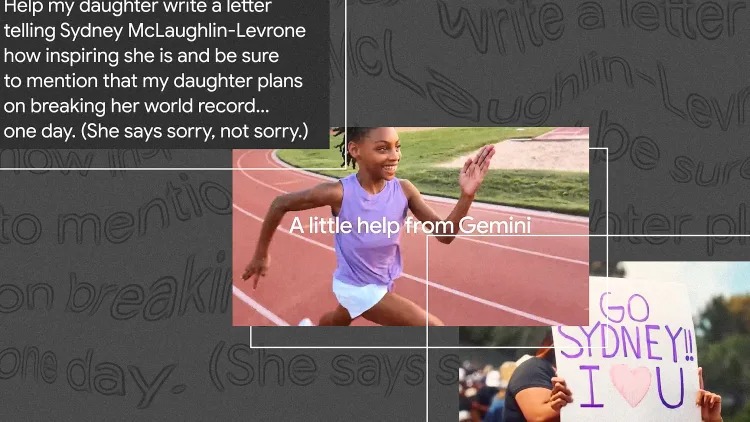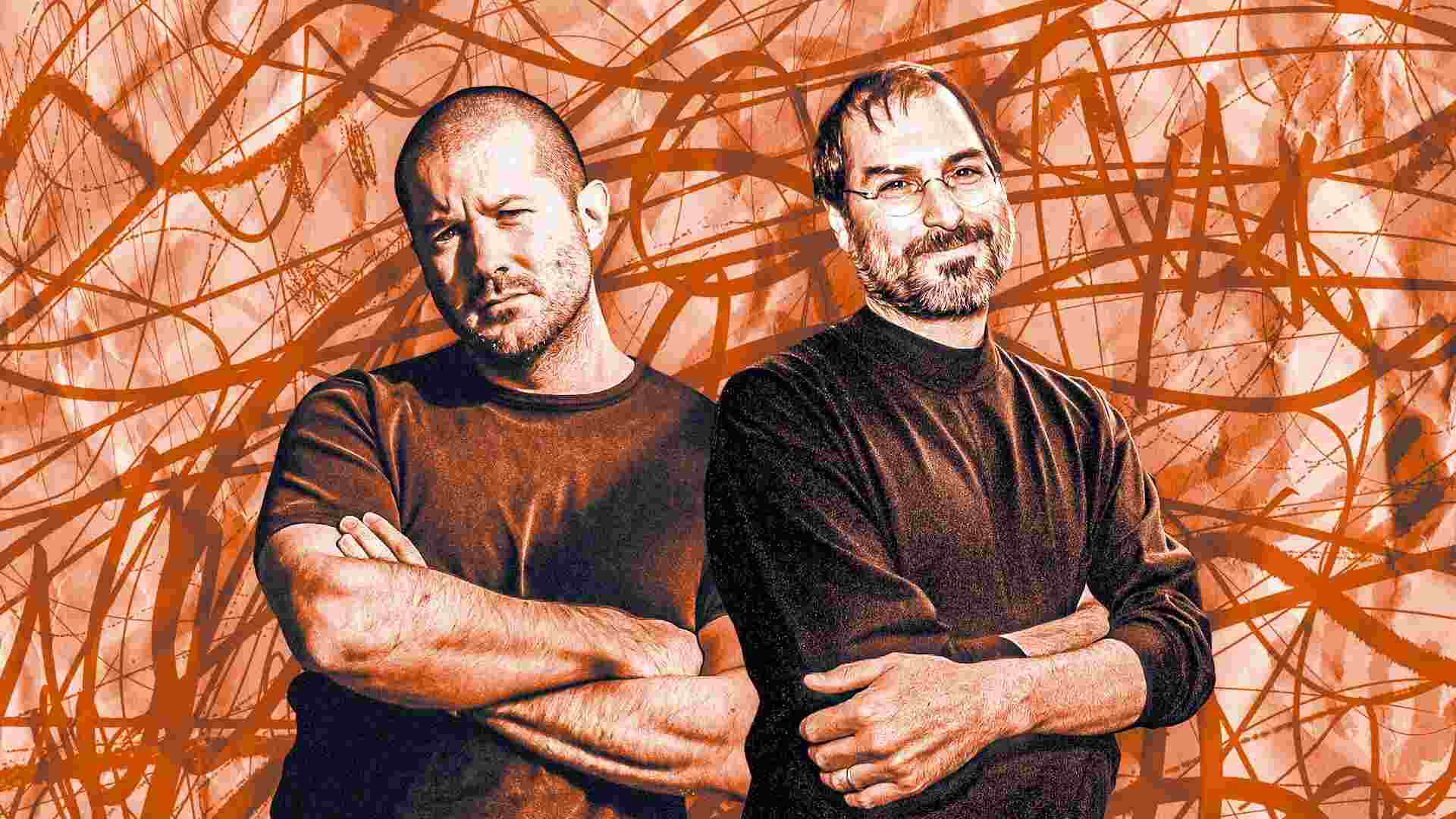- | 8:00 am
Google’s new Gemini ad showcases Big Tech’s big AI misunderstanding
Not everything needs an AI shortcut. Sometimes it’s the doing itself that matters.

Remember when you were a kid, and you had that one celebrity hero who could do no wrong? Maybe you loved them so much that you wrote them a heartfelt fan mail, laboring over every word to express how much you looked up to them.
Now, what if AI could have done all of that tricky emotional work for you? For many viewers, that seems to be the unfortunate proposition of Google’s new Team USA ad, which is currently airing alongside the 2024 Paris Olympics.
The spot, called “Dear Sydney,” features a dad as he watches his daughter grow up and fall in love with running. Along the way, she discovers American hurdler and Olympic gold medalist Sydney McLaughlin-Levrone, who becomes her athletic role model. The father then prompts Google Gemini to write the Olympian a note on his daughter’s behalf. The result is an ad that affects sincerity while seemingly suggesting that a child’s creativity should be replaced with words from an AI program. In a landscape rife with AI doomsday narratives, that story arc reads as tone-deaf—and it won’t do Google any favors.
Google Gemini wants to be your kid’s new ghostwriter
Google’s Gemini AI chatbot initially appears when the ad demonstrates how its AI Overview feature might help to quickly answer a sports-related search like, “how to teach hurdle technique.” That’s all well and good. The real problems begin around midway through the video, when the narrator decides to ask Gemini AI to write his daughter’s fan mail to McLaughlin-Levrone.
“[My daughter] wants to show Sydney some love, and I’m pretty good with words, but this has to be just right,” the narrator says. “So, Gemini, help my daughter write a letter telling Sydney how inspiring she is. And be sure to mention that my daughter plans on breaking her world record one day. (She says sorry, not sorry).”
“Dear Sydney” uses the language and imagery of so-called “brand authenticity” to inspire warm, fuzzy feelings amongst its viewers by emphasizing words on-screen like “love” and “inspiration.” And, indeed, the story is an undeniably heartwarming one of a young athlete finding motivation from an Olympic star—a seemingly foolproof recipe for marketing success.
Authenticity’s not for the bots
But the ad’s play for authenticity immediately sours when it becomes clear that, at its core, this is a pitch for replacing human-to-human connection with what’s essentially a robot mediator. The final addition of the child’s own message to Sydney (“sorry, not sorry”) filtered through Gemini AI smacks of insincerity.
“It should be written by her own hand in the imperfect, pure language of childhood adoration…this is just so sad to me,” one user on X (formerly Twitter) wrote of the ad. “Instead of putting his daughter’s feelings into a computer program why wouldn’t he just…help her articulate her thoughts?”
Another viewer added, “Seeing that Google Gemini AI ad really hurt my heart as someone who has taught writing to many young kids. Suggesting a child that young should use AI to write a letter to their Olympic hero is a suggestion to steal important experiences from that child.”
AI is best as a creative helper, not co-opter
It’s easy to find negative narratives about AI in the creative space, from job displacement fears to a whole slew of embarrassing AI-generated gaffs. But as many professionals know, AI can also be a tool to augment creativity (see, for example, how Mattel’s package designers are using AI to imagine new Barbie boxes).
Ultimately, AI is a tool: its morality is determined by how companies and individuals choose to use it. Marketers can take advantage of that by highlighting the technology’s practical applications rather than its hypothetical personal ones—which, in real life, aren’t exactly plentiful. Inserting AI tech into an emotional context almost always ends up feeling out of touch at best, and dystopian at worst.
It seems like major companies like Google have yet to grasp how public hesitance around increasingly powerful technology will impact the reception of ads like “Dear Sydney.” Apple, for example, recently faced criticism for a new ad that showed various creative tools and instruments getting crushed in a hydraulic press, ostensibly to illustrate just how many amazing possibilities are accessible in the new iPad Pro.
Instead, the ad was accused of crushing viewers’ creative dreams. The spot failed to position its advanced product as a cool add-on to the existing joys of life (like, say, playing a guitar), instead implying that you might as well just throw that guitar out the window once you get your hands on the iPad.
Marketers have a choice to position AI tools in a hopeful light by framing them as creative helpers rather than usurpers of creativity. Google doesn’t fall on the right side of that aisle with “Dear Sydney.”







































